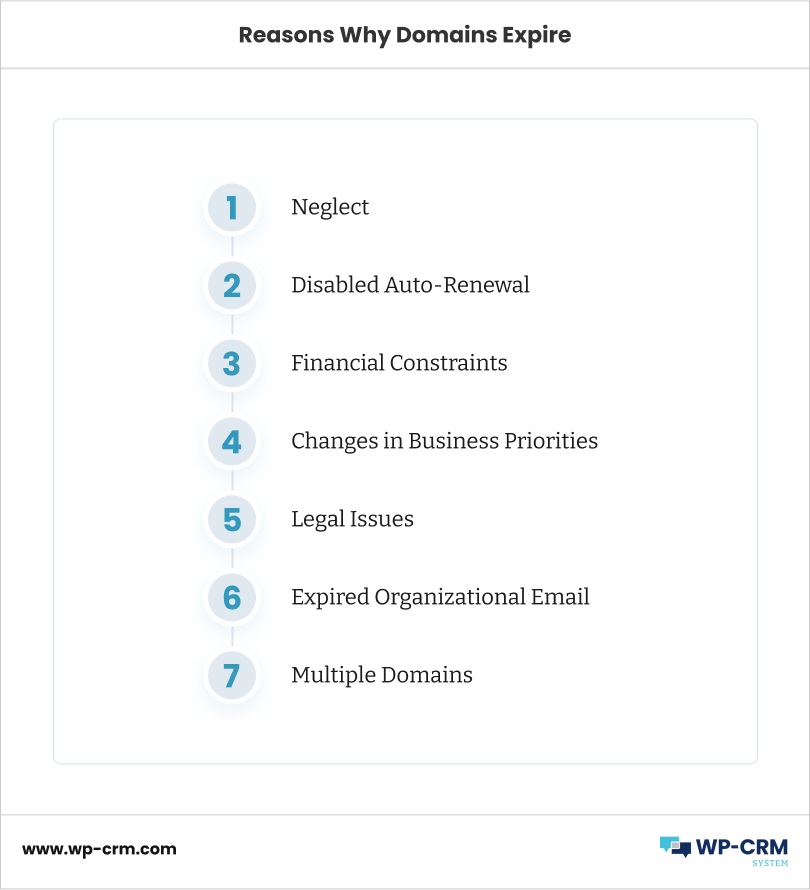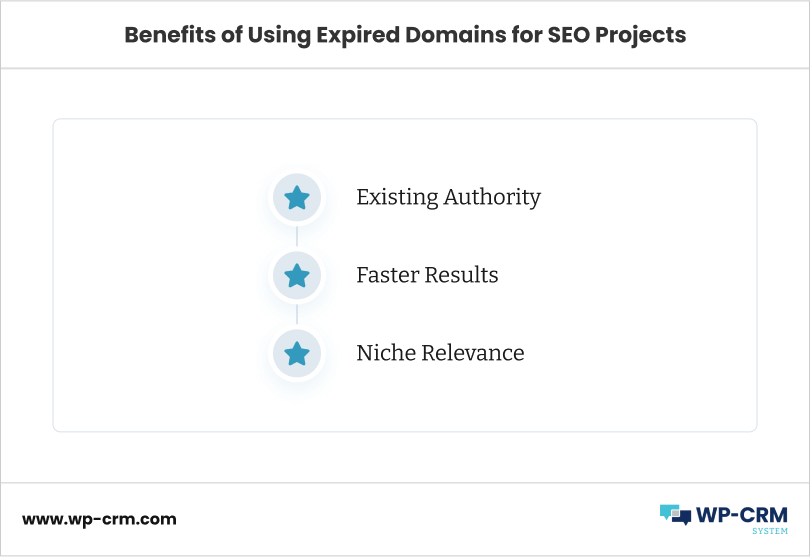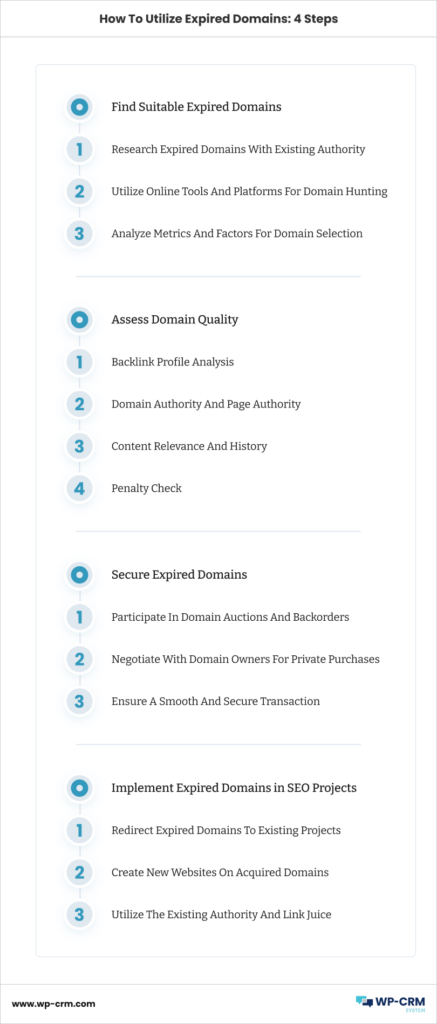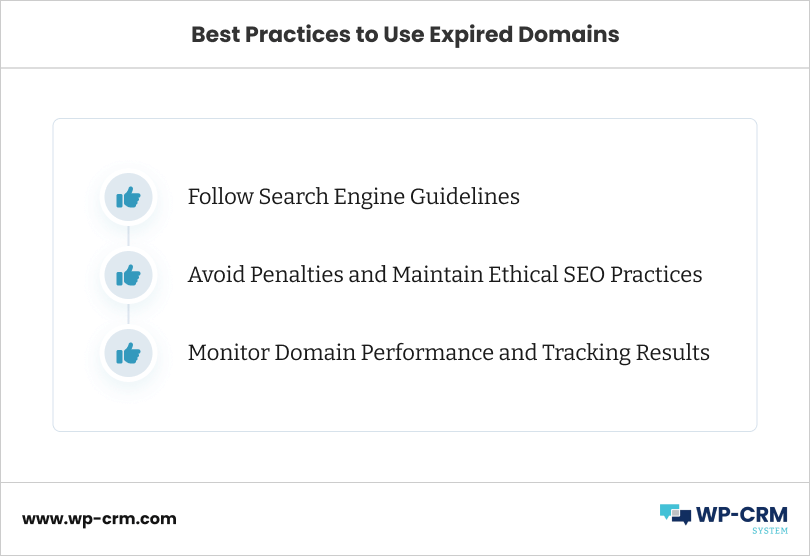How To Find Your Next SEO Project with Expired Domains
If you landed on this article, chances are you are either thinking of dipping your toes into domain flipping, or interested in buying expired domains to make them your own.
You’re at the right place, and despite the recent core update Google rolled out, it is still possible to earn a living from content (as long as it’s quality and helpful!).
Expired domains are web addresses that were previously registered but have not been renewed by their owners. These domains often retain valuable assets such as backlinks, domain authority, and existing traffic. Leveraging expired domains can provide a significant boost to SEO projects by tapping into this existing authority and credibility.
Of course, in order to develop and sustain the online performance of expired domains, you first need to do some research on their past.
As of 8 April 2024, there are 137,108 expired domains but only 684 of them have a DA score over 20.
Of course, that’s not something a good SEO strategy and a persistent content schedule can’t fix, but there are also other factors you need to take into account when hunting for expired domains that can make you a profit.
In this article, we will walk you through the necessary factors and checks you need to carry out in order to catch an expired domain that is worth it.
What Are Expired Domains?

Expired domains are web addresses that were once registered by individuals or organizations but have not been renewed by their owners upon expiration of the registration period. These domains become available for registration by anyone after a grace period, during which the original owner may still renew the domain. Expired domains can vary widely in their characteristics, including age, backlink profile, domain authority, and niche relevance.
Reasons Why Domains Expire

Domains expire for a variety of reasons, including:
Neglect
Some domain owners may forget to renew their domain registration due to oversight or lack of awareness of the expiration date. Disabling renewal reminders may lead to missed deadlines. While emails can clutter your inbox, they’re crucial for staying informed. Despite receiving multiple renewal reminders, some wait too long to renew their domain, resulting in irreversible consequences. On the expiration day, ownership of the domain will be lost.
Disabled Auto-Renewal
If a site owner hasn’t enabled domain renewal, they risk forgetting to renew it. With auto-renewal, your domain will be automatically renewed before the expiration date, usually a day prior. This feature remains active unless modifications are made or billing issues arise.
Financial Constraints
In some cases, domain owners may choose not to renew their domains due to financial constraints or budget cuts. Or, they simply forgot to update their billing information!
Changes in Business Priorities
Businesses may let domains expire if they no longer align with their strategic objectives or if they undergo rebranding or restructuring.
Legal Issues
Domains may expire if the owner faces legal issues or disputes related to trademark infringement or other legal challenges.
Expired Organizational Email
When someone registers a domain, a common mistake is to use email accounts tied to their work or school, which may become inaccessible if they graduate or leave the organization. If the email associated with the domain is no longer accessible, it becomes impossible to receive expiration alerts. Even though it’s still possible to renew the domain without accessing the email account, it adds unnecessary complexity and increases the risk of missing important notifications.
Multiple Domains
If a site owner runs a number of websites, it is easy to forget when each one needs to be renewed. Spreading out your domains across multiple registrars increases the risk of forgetting or losing track of them, especially if you own many different domain names. Consolidating your domains into one service, like Domain.com, is recommended. This approach centralizes all your domains and links them to a single billing account, simplifying payments, expiration date checks, and management tasks from one platform.
Benefits of Using Expired Domains for SEO Projects

Leveraging expired domains can offer several advantages for SEO projects, including:
Existing Authority
Expired domains often retain valuable assets such as domain authority, backlinks, and existing traffic. By acquiring and repurposing these domains, SEO practitioners can tap into their existing authority and credibility, giving their projects a head start in search engine rankings.
Faster Results
Utilizing expired domains can expedite the SEO process by providing an established foundation to build upon. Rather than starting from scratch, SEO projects can benefit from the domain’s pre-existing visibility and authority, leading to quicker results in terms of search engine rankings and organic traffic.
Niche Relevance
Depending on the niche and industry, expired domains may offer niche-specific relevance and topical authority, making them highly desirable for SEO projects targeting specific audiences or market segments.
How To Utilize Expired Domains: 4 Steps

Expired domains offer a wealth of opportunities for SEO projects, providing a shortcut to building authority and improving search engine rankings. However, effectively utilizing expired domains requires a strategic approach. Here are four key steps to leverage expired domains successfully:
1. Find Suitable Expired Domains
Researching and identifying suitable expired domains is the first crucial step in utilizing this strategy. Here’s how to do it:
Research Expired Domains with Existing Authority.Start by identifying expired domains with established authority in your niche. Look for domains with a strong backlink profile, high domain authority, and relevant content. These domains already have credibility with search engines, making them valuable assets for SEO projects.
Utilize Online Tools and Platforms for Domain Hunting.There are numerous online tools and platforms available for finding expired domains. Tools like Ahrefs, Moz, and SEMrush offer domain analysis features that allow you to search for domains based on specific criteria such as domain authority, backlinks, and traffic metrics. Additionally, domain marketplace platforms like GoDaddy Auctions, Namecheap Marketplace, and Flippa provide access to a wide range of expired domains available for purchase.
Analyze Metrics and Factors for Domain Selection.When evaluating expired domains, consider various metrics and factors to determine their suitability for your project. Look at metrics such as domain age, backlink profile, referring domains, anchor text distribution, and content relevance. Analyzing these metrics will help you identify high-quality domains that align with your SEO goals and objectives.
2. Assess Domain Quality
Once you’ve identified potential expired domains, it’s essential to assess their quality to ensure they meet your requirements. Assessing domain quality is crucial to ensure you’re investing in domains that will yield positive results for your SEO projects. High-quality domains will have a positive impact on search engine rankings, traffic, and overall project success. Here’s how to assess domain quality like a pro:
Backlink Profile Analysis. Examine the backlink profile of the expired domain to assess the quality and relevance of inbound links. Look for backlinks from authoritative and reputable websites in the same niche or industry. Avoid domains with spammy or low-quality backlinks, as they can negatively impact SEO.
Domain Authority and Page Authority. Use tools like Moz’s Domain Authority (DA) and Page Authority (PA) metrics to evaluate the overall authority of the expired domain. Higher DA and PA scores indicate a stronger and more trustworthy domain. Aim for domains with DA and PA scores above 20 for better SEO potential.
Content Relevance and History. Check the content history of the expired domain to ensure it aligns with your niche or business. Look for domains with relevant content and a history of producing high-quality, engaging content. Avoid domains with a history of spammy or low-quality content, as they may have been penalized by search engines.
Penalty Check. Conduct a penalty check to ensure the expired domain has not been penalized by search engines in the past. Use tools like Google Search Console or third-party penalty-checking tools to verify if the domain has any manual actions or algorithmic penalties. Avoid domains with penalties, as they can significantly hinder SEO efforts and organic rankings.
3.Secure Expired Domains
Once you’ve identified and assessed suitable expired domains, the next step is to secure them for your SEO projects. Here’s how to do it:
Participate in Domain Auctions and Backorders.Many expired domains are auctioned off to the highest bidder on domain marketplace platforms. Participate in domain auctions to bid on desirable domains and secure them for your projects. Additionally, consider placing backorders on domains that are about to expire, ensuring you have the opportunity to register them as soon as they become available.
Negotiate with Domain Owners for Private Purchases.In some cases, expired domains may not be available through public auctions or backorders. In such instances, you may need to negotiate directly with the domain owner for a private purchase. Reach out to the owner via email or through domain brokerage services to discuss the possibility of acquiring the domain.
Ensure a Smooth and Secure Transaction.Once you’ve secured an expired domain, ensure the transaction process is smooth and secure. Use reputable domain registrar services to register the domain and transfer ownership. Verify the domain’s registration status and ensure all necessary paperwork and documentation are in order to avoid any legal or administrative issues.
4. Implement Expired Domains in SEO Projects
Once you’ve acquired expired domains, it’s time to implement them into your SEO projects effectively. Here’s how to make the most of these domains:
Redirect Expired Domains to Existing Projects.If you have existing websites or projects, consider redirecting acquired expired domains to relevant pages or content on your main site. This can help consolidate link equity, boost domain authority, and improve search engine rankings for your primary website.
Create New Websites on Acquired Domains.Alternatively, you can create new websites or microsites on acquired expired domains. Develop high-quality, relevant content and optimize the site for your target keywords and audience. By leveraging the existing authority and backlinks of the domain, you can expedite the SEO process and achieve faster results.
Utilize the Existing Authority and Link Juice.Regardless of whether you redirect or create new websites on acquired domains, leverage the existing authority and link juice of these domains to your advantage. Focus on building quality backlinks, publishing valuable content, and optimizing on-page SEO elements to maximize the domain’s potential and drive organic traffic.
Additional Factors to Consider
Consider various factors when evaluating domain quality, including:
Domain Age
Older domains tend to have more authority and credibility with search engines. Also, look for domains with a diverse and natural backlink profile from authoritative websites.
Content Relevance
Ensure the domain’s existing content is relevant to your project’s topic or industry.
Spam Scores
Use tools like SpamZilla or Spam Score Checker to check for any spammy backlinks or black hat SEO tactics associated with the domain.
Use Tools to Check Domain History and Spam Scores
Take advantage of tools and services that provide insights into a domain’s history and spam score. Tools like Archive.org and Wayback Machine allow you to view a domain’s historical content and website changes over time. Additionally, tools like Moz’s Spam Score and Google’s Disavow Tool can help you identify and address any spammy links associated with the domain.
Best Practices to Use Expired Domains

Utilizing expired domains for SEO projects can be immensely beneficial, but it’s essential to follow best practices and take precautions to ensure long-term success. Here are some key considerations:
Follow Search Engine Guidelines
Adhering to search engine guidelines is crucial when leveraging expired domains for SEO. Search engines like Google have specific rules and regulations governing website optimization practices. Violating these guidelines can result in penalties, loss of search visibility, and even de-indexing from search results.
Ensure that any SEO tactics employed on expired domains comply with search engine guidelines. Avoid black hat techniques such as keyword stuffing, cloaking, or buying links, as these practices can lead to severe repercussions. Instead, focus on white hat SEO strategies that prioritize user experience, content quality, and ethical optimization methods.
Avoid Penalties and Maintain Ethical SEO Practices
Maintaining ethical SEO practices is essential to safeguard the integrity of your SEO projects and avoid penalties from search engines. When working with expired domains, it’s crucial to conduct a thorough audit of the domain’s backlink profile and content to identify any potential red flags or spammy elements.
Disavow any toxic or irrelevant backlinks that could harm the domain’s reputation and adhere to best practices for content creation and optimization. Publish high-quality, original content that provides value to users and avoids any deceptive or manipulative tactics.
Additionally, prioritize user experience by ensuring that the website is well-designed, mobile-friendly, and easy to navigate. Focus on creating a positive user experience that encourages engagement and fosters trust with visitors.
Monitor Domain Performance and Tracking Results
Continuously monitoring domain performance and tracking results is essential for evaluating the effectiveness of your SEO efforts and making informed decisions. Utilize analytics tools such as Google Analytics and Google Search Console to track key metrics such as organic traffic, keyword rankings, and user engagement.
Regularly analyze domain performance to identify areas for improvement and optimize your SEO strategy accordingly. Keep an eye on changes in search engine algorithms and industry trends to stay ahead of the curve and adapt your approach as needed.
Track the impact of your SEO efforts over time and adjust your tactics based on the results. Celebrate successes and learn from failures to refine your strategy and drive continuous improvement in your SEO projects.
Conclusion
Incorporating expired domains into your SEO strategy can significantly enhance your project’s visibility and authority. By following best practices and ethical guidelines, you can leverage the power of expired domains to achieve faster results and drive organic traffic. Explore this strategy for your next project and unlock its potential benefits. Remember to conduct thorough research, assess domain quality, and monitor performance diligently. With responsible practices and strategic implementation, expired domains can be a valuable asset in your SEO toolkit, propelling your projects to greater success in the competitive online landscape.
